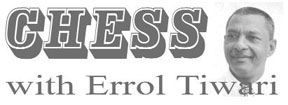 After five games of the 14-round Candidates Chess Tournament, the 25-year-old Russian grandmaster Sergey Karjakin had accumulated a total of 3½ points (a win = 1 point, a draw = ½ point; a loss = 0). He was followed by Armenia’s Levon Aronian on three points.
After five games of the 14-round Candidates Chess Tournament, the 25-year-old Russian grandmaster Sergey Karjakin had accumulated a total of 3½ points (a win = 1 point, a draw = ½ point; a loss = 0). He was followed by Armenia’s Levon Aronian on three points.
Karjakin was the only player to score two wins thus far against Vishy Anand and Hikaru Nakumura, in addition to three draws. Third place contestant Anish Giri from the Netherlands had been unsuccessful in winning a game. His games all ended in draws just as Danish grandmaster and current world champion trainer Peter Heine Nielsen predicted.
Although the tournament still has a long way to go—to the end of next week—one of the bookmakers’ fancies, Nakamura, disappointed many with his loss to Karjakin. However, Nakamura held on to draws for the remainder of his other four games. Nevertheless, he held the insignificant position of being placed close to the rear of the field ahead of Veselin Topalov, who was absolutely at the rear of the eight contestants. The US’s Fabiano Caruana and Russia’s Peter Svidler played to draws in all of their encounters, similar to Giri. Aronian managed one win against Topalov cementing for him second place. Anand was in the bottom half of the contestants’ field at number six.
As the first few rounds were played, the computer made an assessment of the players outside of the favourites who would be willing to take risks in order to obtain results. This seemed to fit the actions of Caruana who uncorked the Benoni defence against the seasoned Aronian, hoping to catch him, perhaps, off-guard. The Benoni is rarely played at the elite level of chess.
Naturally, Karjakin would be the primary benefactor of the tournament should draws continue. The players themselves would have to prevent this from occurring.
The computer remarked that the Russians, Karjakin and Svidler, surpassed the Americans, Caruana and Nakamura, in total chances to win the tournament. Were the draws to continue for the next four rounds, the Russians would continue to widen the gap. The overall number of wins, according to the computer, dropped to 8.6 from 9.0. After five rounds, four wins had been recorded.
My view, however, was that we would see more wins than the computer supposed. As the tournament continues, players would be inclined to take risks to obtain results.
Anand wins
The results of round six revealed that Anand defeated Svidler in a lightning-fast 24 moves, and Aronian beat Nakamura in a Queen pawn game. Karjakin and Aronian were leading the points table with four each and Anand was in third place on 3½.




